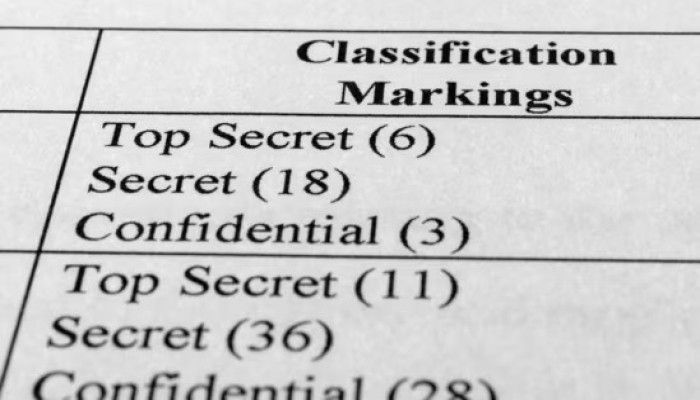Pentagon plans to bolster classified information security after leaks
- In Reports
- 11:53 AM, Jul 06, 2023
- Myind Staff
Following the shocking breaches of hundreds of intelligence papers that were obtained through security flaws at a Massachusetts Air National Guard facility, the Pentagon on Wednesday announced efforts to enhance protection for confidential material.
The assessment comes after Jack Teixeira, a 21-year-old Air National Guardsman from Massachusetts, was accused in April of leaking hundreds of top-secret documents online in a chatroom on Discord, a social media platform that started as a hangout for gamers.
In a memo made public on Wednesday, Defence Secretary Lloyd Austin directed the department's guarded rooms where sensitive data is kept and accessible to be brought up to the standards for control and tracking set by the intelligence community. The modifications ask for higher levels of physical protection, more measures to prevent inappropriate document removal, and the appointment of top-secret control officers to keep an eye on users.
The department is attempting to strengthen accountability, according to a senior defense official who briefed reporters on the new orders and is deploying technology that can better track what staff members are doing and what information they are accessing. However, the official added, defense commanders do not want to prevent when necessary the sharing of crucial information throughout the government.
“There wasn’t a single point of failure,” a senior Defense official, speaking on the condition of anonymity, told reporters Wednesday. “There are contributing factors to any security incident. And so, this was an opportunity…to make sure that we made the improvements that we could.”
The review focused on four areas: personnel security, information safeguarding and accountability, physical security, and education and training. On June 30, Austin sent a memo to all Defense Department personnel that required managers to take “follow-on actions” that would aim to enhance detection of “insider threats” and improve information-sharing.
In the memo, Austin also said the sensitive compartmented information facilities, or SCIFs, must be monitored to prevent the use of electronic devices inside the rooms. That effort would include “appropriate electronic device detection systems and mitigation measures” inside the secure areas, according to the memo.
The government is already working toward a semi-automated “continuous vetting” program which checks people’s records against commercial and government data and flags potential risks. Austin ordered the Pentagon’s Chief Information Officer to work with the Chief Data and Artificial Intelligence Officer to come up with better data reporting and analysis. He also called for the establishment of an office whose mission is to hunt for suspicious activity on government networks. Such measures will almost certainly require more funding and personnel in the years to come.
According to authorities, Teixeira, who enlisted in the Air National Guard in 2019, began sharing military secrets first by typing out classified documents and later by removing classified documents from the base and taking them home to photograph them.
Teixeira worked as a “cyber transport systems specialist,” essentially an IT specialist responsible for military communications networks, which gave him wide access to the military's classified computing networks.
According to court documents in Teixeira's case, Air National Guard managers cautioned him at least three times about illegal access to secret information; nonetheless, no additional steps were made to limit his clearance or access.
As per the official, one of the issues the department discovered during its investigation was ambiguity around some of the military's classified information policies at installations located further away from headquarters, such as when a security violation needed to be reported higher up the chain of command.
Teixeira pleaded not guilty last month to federal felony charges.
Austin also instructed the Defence Counterintelligence and Security Agency to improve how "continuous vetting information" — any updated reports on criminal records, credit reports, or other indicators that are tracked as part of background checks — can be more quickly shared to flag a potential security risk. This information includes ways to quickly flag and communicate concerns to local commanders about personnel.
The senior Defense official who spoke to reporters said that the rising number of people with access to top-secret information is a complex issue the Pentagon needs to confront. This growth, which began after the Sept. 11, 2001 terror attacks, has led to a patchwork of classification policies that confuses security managers, the official said.
Austin’s memo gives Pentagon managers up to three months to implement the “follow-on” actions. Separately, the U.S. Air Force inspector general launched a probe in April that is still ongoing.
Image source: AP







Comments